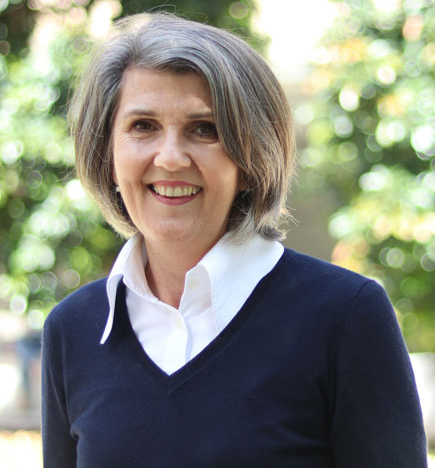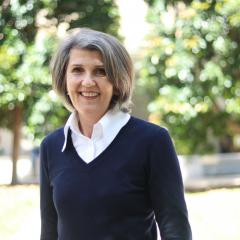Older single women are the fastest growing section of the Australian population experiencing homelessness.
 Working to understand the pathways into homelessness for older women is UQ’s Dr Maree Petersen, a leading researcher on homelessness among seniors.
Working to understand the pathways into homelessness for older women is UQ’s Dr Maree Petersen, a leading researcher on homelessness among seniors.
Dr Petersen’s program of research over the past six years has comprised three projects concerned with understanding older people’s homelessness in Australia, addressing the housing and support needs of older women experiencing homelessness, and advocating for the intersection of housing, homelessness and aged care policies.
“There is currently strong attention to the ageing of the population worldwide, but that’s only part of the story here,” she explains.
“It’s like a perfect storm – along with the increasing numbers of baby boomers coming up we have a real issue with unaffordable housing in this country. There’s been a decline in government expenditure on social housing and decreasing rates of home ownership. Less and less people own their own homes and the number of older people that applies to is increasing.
“In addition, the aged pension assumes that you own your home and you’re not paying rent. So for older people that are on a pension, a fixed low income, to pay over $300 per week in rent means they do without food, they do without medication, it means they don’t go out, they don’t put on a fan because they can’t afford the electricity; it’s the combination of all these factors.
“Housing is central to health. If you don’t have secure housing it impacts your health. As a society we need to be thinking about this issue in terms of our health priorities and in terms of aged care, it’s all linked together.”
Dr Petersen is part of The National Older Women’s Housing and Homelessness Working Group, which consists of housing and homelessness policy leaders, researchers and practitioners from universities around the country and organisations such as the Mercy Foundation, Micah Projects, the YWCA, among others.
Together they examine national policies that need change and advocate for more effective strategies so that older women can access affordable, safe, secure and appropriate housing and enjoy good health as they age.
In August 2018 the group launched a report at Parliament House Canberra that argues for the creation of a national agenda for action to address issues of financial and housing insecurity for women aged 50 years and over.
“Australian women aged over 50 are at greater risk of financial and housing insecurity than older men. Women in this age group did not benefit from compulsory superannuation at the beginning of their working lives, they were more likely to have been paid at a lower rate than their male counterparts and were likely to have taken time out of the paid workforce to have children and fulfil caring roles.
In fact, many of these women were required to leave their jobs when they married or started a family.
“Most older women who are homeless have not been homeless before. They are largely people who have lived conventional lives in terms of having worked and raised families, but they’ve not had a mortgage or had capital in a home, they’ve been privately renting. Myriads of factors have contributed to the situation they now face in later life, from levels of education, life choices, access to resources, support networks, and more.
“Many older women without stable housing often don’t think of themselves as “homeless”, as they’re not sleeping rough, but instead they move between family members, stay with friends, sleep in cars – anything that will keep them off the streets. Homeless women generally move from place to place often in a downhill trajectory in terms of mental and physical health as their situation becomes untenable.
“The long term view now needs to focus on prevention and early intervention, to ensure that women at risk of homelessness have affordable housing and support to be healthy, safe and secure in their own homes as they grow older.”
Words: Dani Nash



